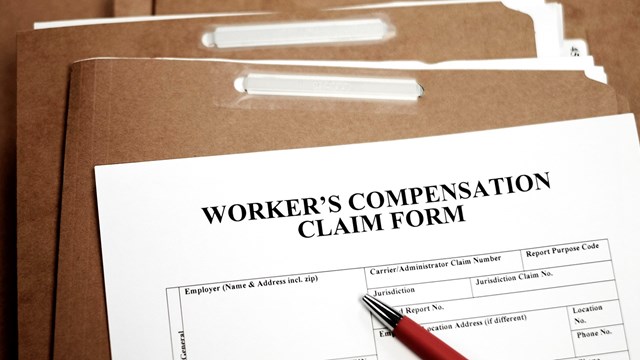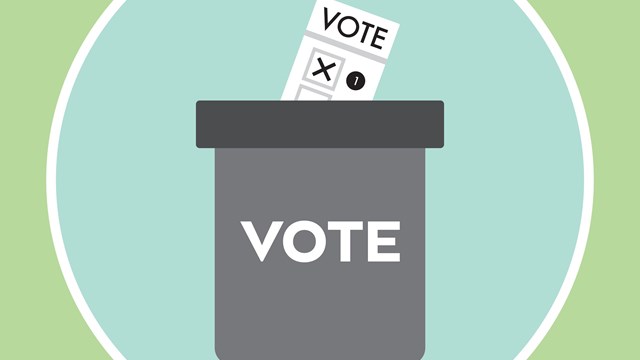Criminals like Bernard Madoff and other so-called “white collar” lawbreakers have made headlines recently with their financial double-dealings, but unfortunately, fiscal mismanagement and fraud also happen in co-op and condo communities. The scale is much different obviously, but an apartment is a major investment, and residents of a building trust their board members and managing agents to uphold their fiduciary responsibilities and be good custodians of that investment.
It's vital, therefore, for building administrators to have a sound system of checks and balances in place to keep things transparent and above board in their co-op or condo community's operations. Such a system will alert board members, managing agents and other concerned parties to the possibility that something odd is happening with—or off of—the building’s books. But it’s not always the obvious financial frauds that might be uncovered; dealings of various kinds might be found.
The More Eyes, the Better
"Fraud" doesn't always take a form that board members or others might suspect, which is part of the reason why there are many potential weak spots that can make a building vulnerable to theft and mismanagement. As part of their fiduciary responsibility, board members also must guard against shady practices that aren’t exactly fraud but which are undesirable and not helpful to the building.
One such shady area involves quid pro quo situations. In return for sending business their way, a person involved with a building’s operations might get something like cash or services from a contractor as a kickback. Such a scheme might involve a property manager overpaying a contractor with building funds, then being given cash by the contractor in exchange for the inflated payment, or having a new deck put on their house in repayment.
“The biggest schemes you encounter are when someone is in cahoots with contractors and getting kickbacks,” says Gerald Marsden, a partner with Manhattan-based accounting firm Eisner and Lubin LLP. “The other [scheme] is when someone is writing ‘play’ checks to themselves.”
Who’s minding the paychecks, and what the checks and balances are, could be the two most important factors that make one building more vulnerable to fraud than another. Fraud might be perpetrated on a building by a manager or a director or directors on the building’s board. In cases of fraud committed by board members, the deed could happen if one or two board members were signatories of the building’s reserve account and ended up pilfering it.
When considering ways to thwart fraud in a residential community, the overwhelming opinion among industry professionals is that the more administrators (such as property managers and board members) are involved in watching the community’s financial movements, the safer the community’s assets will be.
At a minimum, a co-op or condo community should have two board members with joint signatory responsibility for borrowing for the community or for accessing the cash reserve account, says Jeff Heidings, president of Siren Management in Manhattan.
“A board should never allow one board member to be the only signatory on an account, because that leaves the account vulnerable,” Heidings says, adding that the board also should be insured in the event of fraudulent dealings by those working for the building. “The odds are a lot less likely of two people being dishonest and conspiring.”
Being out of the loop regarding their community’s financial affairs could cost board members money, because their aloof stance could be enabling criminals. The easiest communities to steal from are those whose boards have a hands-off governing style, says Stephen Beer of the Manhattan-based accounting firm Czarnowski & Beer. Some of the most vulnerable buildings rely heavily on their property managers to handle all of the details of running the community’s operations, he adds.
“Oversight by the board is the best protection,” Beer says.
With such board supervision, questionable practices such as hiring contractors who are paid in cash can be caught—or better still, avoided before they even start. Even smaller but potentially problematic control issues might be detected, such as when a building examined by Czarnowski & Beer was found to have given a credit card to the superintendent for expenses. That’s a no-no that can lead to many "oh no’s" from the board if an unscrupulous superintendent abuses the credit card.
“Frauds tend to start small and grow over time,” Beer says.
As with so many other crimes, fraud is a crime of opportunity. An unscrupulous person sees an opportunity to defraud in the process of doing their job. For example, the superintendent might accidentally use the building expenses credit card to gas up his own car one time. When he realizes that no one notices, he does it again. After a while, the theft becomes a habit with the superintendent regularly buying other personal items on the credit card. Over time, the petty thefts add up to thousands in losses to the building.
Protecting Assets
Ensuring that your community’s assets are secure can sometimes involve nipping in the bud any unnecessarily increasing expenses. Again, the community’s financial bottom line must be closely scrutinized to find these increases. Under such evaluation, theft of building materials from a construction job in the building, or the regular pinching of building cleaning supplies by staff will be caught before those actions become patterns and result in higher maintenance fees for residents.
Even mundane aspects of a building’s operations, such as contracts and supply ordering, are areas of co-op/condo buildings that often are vulnerable to cheating and fraud. Because of a lack of controls in many buildings, often property managers can commit fraud quite easily, Heidings says. Again, he advises boards to make sure all checks are countersigned by at least one board member to prevent manager fraud..
A warning sign that could lead a board member or manager to suspect that the building’s finances are being mishandled or misappropriated might be that a particular cleaning solvent or another building supply suddenly costs much more than it once did. If the $20 solvent suddenly costs $50, a kickback scheme could be happening.
Some financial controls can be put in place to avoid misdealing as well. The board of directors can put a cap on the amount for which checks paid by the building can be written. Or, the board might instruct the bank that any amount over a certain set number not be removed from its account without a letter from the board approving the withdrawal.
A board’s members can expect some help in protecting the community’s assets from its professionals, including the building’s accountant, its attorney and its other professional advisors. Because much of the burden of protecting the community’s assets is in the hands of accountants, these days, auditors must do risk-based auditing. That approach focuses on recorded and unrecorded risks, by evaluating the payment of bills, the building’s internal controls, and whether the building’s system of balances can be relied upon. Through the process, an accountant can identify cases of fraud.
“It’s really looking at controls," says Carl Cesarano, co-owner of Cesarano & Khan, an accounting firm based in Manhattan, echoing other money managers' sentiments. "You also need to have a board member who can do monthly reviews of the building’s financial reports. Some boards keep the reserve fund out of the hands of the property manager. The more people on the board looking at the financial statements, the less likely you are to have a problem.”
A board and management team can help themselves to avoid being taken by actually comparing the building’s financial statements from month-to-month or year-to-year. Those closer examinations could reveal discrepancies in spending for different items and services.
“You’re looking for variations, and you’re looking for blips,” Cesarano says. “We know certain expenses reoccur. You should look at utilities and see if anything strange is going on there. Whenever you have a third party such as a property manager watching your building, you have to watch what they’re doing.”
Scrutiny of a building’s operations is a team approach, with board members, the managing agent and the accountant all having roles to play in the process. Board members should regularly check online to see what payments are being made for the building’s expenses. At the very least, the board’s treasurer should regularly review those payments.
Every co-op and condo community must have a yearly audit. That audit should help boards to pick up on duplicate payments being made, or illusory vendors receiving funds, Heidings says.
However, audits often do not look at 100 percent of all of a building’s bills, so they cannot be viewed as definitive. They are a sampling of financial activity that sometimes can miss inconsistencies which point to mishandling or misappropriating of a building’s finances.
But it’s not simply a building’s professionals, such as property managers, or a building’s staff members, like the superintendent, who need some over-the-shoulder scrutiny. Outside contractors also must be thoroughly vetted to avoid “sweetheart deals” in which the property manger and contractor are in collusion.
“The board has to be fully aware of who its vendors are. When a new vendor comes along, board members might want to question it, to make sure there’s no hanky-panky going on,” Heidings says.
Prosecuting Wrongdoing
Where shareholders, board members and the property manager go if they suspect or believe their building is being defrauded depends upon the individuals. Still, experts say they should first tell the building’s lawyer.
While the penalties for fraud in a co-op/condo setting can be severe, in many cases they are state crimes. In some cases, the fraud is perpetrated by someone close to the board, whom the board chooses not to prosecute. Or the wrongdoing could be viewed by board members as so small as to not be worth prosecuting. The community’s leaders also might feel foolish that they were deceived and choose to fire the offender, rather than pressing charges and have the situation become public.
Often, Marsden says, communities do nothing about such wrongdoing, because the person who committed the crime is the board’s friend or neighbor. “They look to get some type of restitution. They don’t want the publicity,” he says.
Heidings suggests that administrators of buildings that are defrauded do otherwise. “Go to your attorney, and find out if [the wrongdoing] is actionable, and file charges, if possible,” he says.
Jonathan Barnes is a freelance writer, reporter and a frequent contributor to The Cooperator and other publications.










62 Comments
Leave a Comment